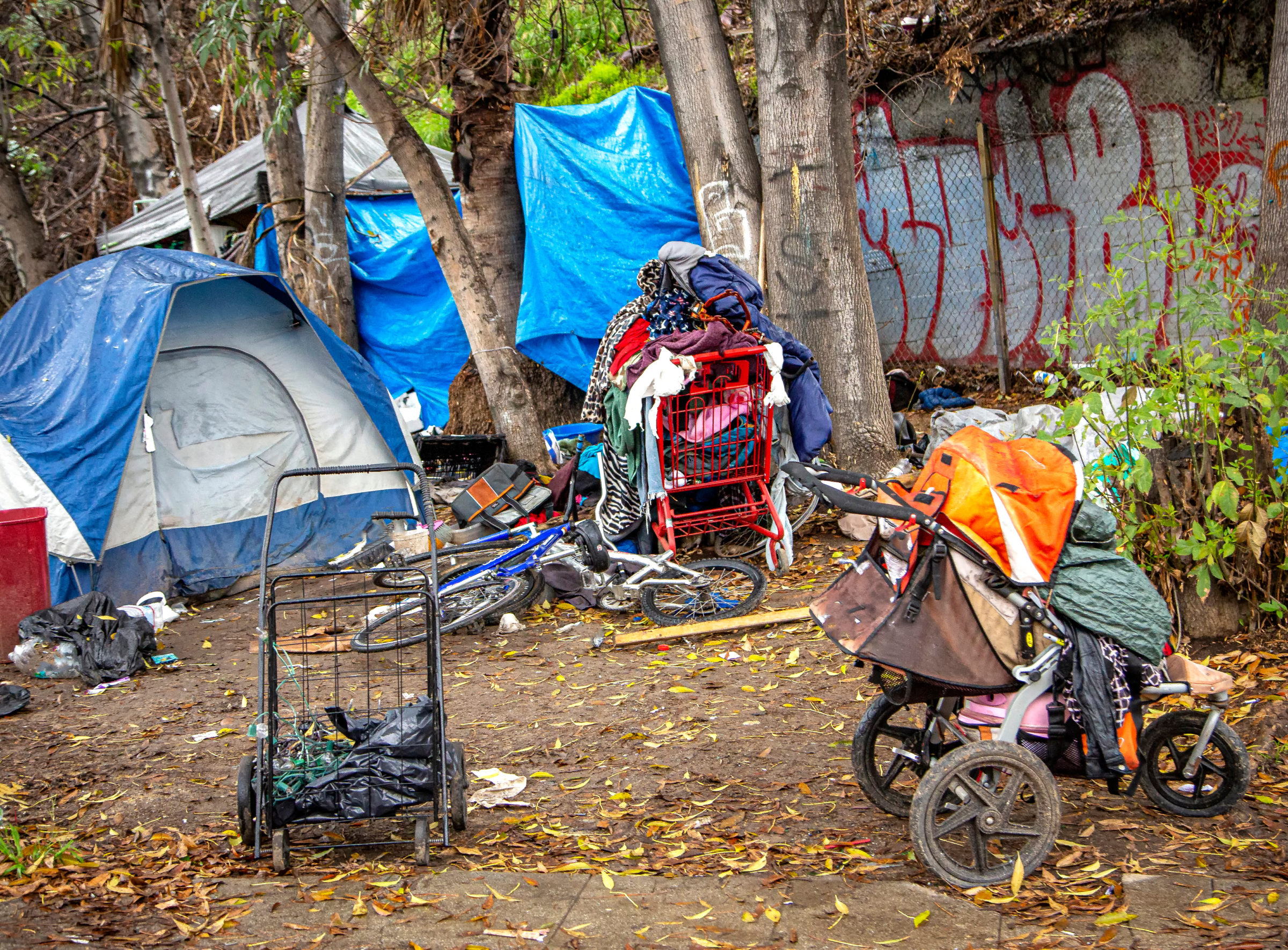Wealth & Poverty Review ‘Housing First’ Caused the Homelessness Catastrophe
Crossposted at Fix HomelessnessHomelessness is a national disgrace. Large swaths of some of America’s (once) most beautiful cities are squalid squatter camps. Visit San Francisco, Portland, Seattle, or Los Angeles and you will see miles of homeless people living on the streets in tents—many openly drug-addled and soiling sidewalks with used needles and human waste.
How did the United States end up in such a filthy state? Blame ideologically driven public policies, most particularly, “Housing First,” a fine-sounding—but ultimately dysfunction-inducing—approach that thwarts ending our homelessness catastrophe.
Housing First approaches homelessness as exclusively an economic problem. Throw enough money into the assisted housing sector, the theory goes, and people will quickly get back on their feet. Never mind that the crisis is largely caused by anti-social and dysfunctional personal behaviors. What matters is giving people a free place to live.
In 2013, a law was passed by Congress requiring that all federally funded assistance programs apply the Housing First formula to ameliorating homelessness. Celebrated as a panacea, the Obama administration promised that the program could end veteran homelessness by 2015, chronic homelessness by 2016, and family homelessness by 2020. Additionally, advocates argued that the approach would end all types of homelessness by 2023—in other words, by next year.
We all know how that turned out. Based on sheer numbers alone, Housing First is clearly an abject failure resulting in lost lives, increased addiction, and spikes in crime.
The proof is in the pudding. Since 2013, homelessness has grown exponentially. As a new report (pdf) by my colleagues at the Discovery Institute demonstrates “unsheltered street homelessness rose by more than 20% even as subsidized housing vouchers went up more than 40%.”
Not coincidentally, California—the epicenter of the crisis—also went all-in for Housing First. “In 2016,” the report notes, “California enacted a law that required that every state dollar spent on homelessness be spent on Housing First programs. From 2015 (the year before the new state policy) to 2019, unsheltered street-level homelessness in California rose 47.1%. … California now boasts almost half of America’s unsheltered street-level homeless population and nearly one in four of America’s overall homeless population, even though it contains only 12% of the U.S. population.”
Other states that embraced Housing First have seen similar disastrous results. “In Seattle/King County … gun crimes tied to homelessness encampments jumped 122% during the first half of 2022. In Portland, Oregon, people experiencing homelessness comprised 50% of all arrests between 2017 and 2020, even though their share of the population was less than 2%. In New York City, the number of deaths of people experiencing homelessness more than doubled in a three-year period from 2018 to 2021, up to 640 deaths, with the most frequent cause of death being drug overdose.”
Anyone with a modicum of common sense could explain why. Housing First is all carrot cake with sweet frosting—and no stick. Specifically, the federal government forbids taxpayer funding for any homeless housing assistance project that requires anything in return from participants. For example, taxpayer-funded housing programs cannot require recipients to stop taking drugs—which is often the reason they are homeless in the first place. Nor can a program require that the mentally ill take their medications. Those receiving free housing cannot be compelled to search for work or receive job training, or even, obey the law. In other words, it is all “quid,” with no “pro quo.”
Housing First is not only misguided compassion but also incredibly expensive. The Los Angeles Times recently revealed that each unit of homeless housing in the city funded by a passed bond issue that takes the Housing First approach costs up to $837,000. And we are not talking about 3,000 square foot houses but small single apartment units. To say the least, this is not “affordable housing” for the taxpayers.
There’s a better, more practical approach forward if the homelessness ideologues and government bureaucrats will just get out of the way. The Discovery Institute study offers the following reforms that Republicans should pursue if they gain control of the Congress in the coming election:
- Pass legislation directing HUD to eliminate Housing First as the primary approach to address homelessness.
- Pass the Housing PLUS Act to prohibit HUD from restricting funds going to providers that require the provision of supportive services (such as addiction treatment or job counseling) or program participation requirements, or to faith-based organizations.
- Prioritize economic “self-sufficiency” as the primary measurement of effectiveness of all federal homelessness assistance programs rather than the number of housing vouchers distributed.
- Prioritize trauma-informed wraparound services in all federal homelessness assistance programs by requiring substantial funding for services such as mental illness clinical services and treatment, substance use disorder therapy and treatment, job training, and job retention.
- Require participation in treatment and training activities when enrolled in federally funded homelessness assistance programs (similar to that required of PELL Grant recipients).
- Eliminate the legal impediments that prevent Medicaid from reimbursing inpatient mental illness and substance abuse disorder treatments.
- Incentivize local governments to reduce or eliminate building fees and burdensome regulations to enable affordable housing construction.
Yes, solving the homelessness catastrophe will continue to cost money. But eliminating Housing First will unleash the creativity of those who are committed to remedying homelessness by helping people become more personally responsible and self-sufficient. Or, we can continue on the current failed course of ideologically driven social inertia and abandon our communities to increased despair, decadence, dissipation, and decline.

